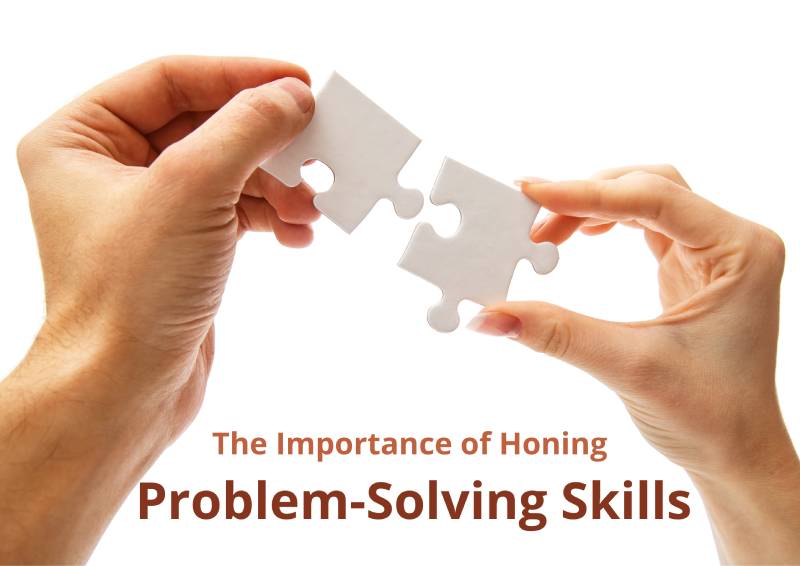[vc_row][vc_column][vc_column_text]Intro
Every individual and organization in the modern world is required to meet challenges ad face problems, so they may do well by learning problem-solving skills. Mild or severe, we all are faced with problems. Honing problem-solving skills and improving decision-making allows us to handle issues we encounter in our professional and personal lives.
Why is Problem-Solving Skill Considered a Critical Quality?
Problem-solving skills enable individuals and business owners to resolve issues effectively and quickly. Considered one of the key skills expected among job seekers, this quality imparts in employee’s self-reliance and the ability to identify underlying issues. This enables them to implement the best possible solution to a problem in the shortest time.
Problem-solving is considered a major soft skill today, and it can be developed by familiarizing with the general issues in the workplace or business. It is more of learning from experienced seniors and professionals rather than learning through training or education. Recognizing or understanding problems from their symptoms is crucial rather than focusing on them. This ensures quick and efficient resolution of issues.
Key Elements that Help to Develop Problem-Solving Skills
To be effective at problem-solving, individuals will also need to acquire a few other skills.
- Innovative thinking: There are several ways to solve problems, the major ones being intuitive and systematic solutions. Intuition does not require new knowledge; it is much into user experience or common sense to solve issues. But complex and unprecedented problems call for creative thinking and innovative application of wit.
- The ability to research and recognize: A major requirement for defining a problem is the ability to research and arrive at the relevant solution. One must master the skill of various possible research methods available for understanding the issue and facing a situation. It helps improve decision-making skills too.
- Emotional intelligence: The caliber to understand our own and others’ emotions is a critical requirement in modern life.
- Team-working capacity: You cannot operate alone, need input from others, and work in tandem with your team.
- Decision-making: Problem-solving skill is intertwined with decision-making ability. With several options available and different alternatives presenting themselves, solving any problem efficiently can only be achieved by excellent decision-making quality.
The Major Stages in Problem-Solving
Although problem-solving might appear to be a single process, it involves multiple steps or stages:
- Problem identification: recognizing and pinpointing the problem is the first step in problem-solving.
- Structuring the problem in hand: This step comprises a careful inspection, observation, and fact-finding that help develop a clear idea of the problem.
- Contemplating possible solutions and choosing the right one: This stage involves generating various courses of action to resolve the issue without attempting to evaluate it.
- Arriving at a decision: By considering the different possibilities and connecting them with the problem at hand, you may choose the best solution that can be implemented.
- Implementation of the strategy: After identifying and structuring the problem, you must decide the right course of action and act on the selected solution. This stage is close to the completion of the entire problem-solving process.
- Getting feedback and monitoring: In this final stage of the problem-solving process, reviewing the outcomes and acquiring actual feedback—the significant factors ensuring the problem is resolved—are performed.
Decision-making skills and problem-solving skills are considered crucial in the modern business ecosystem.[/vc_column_text][/vc_column][/vc_row]









